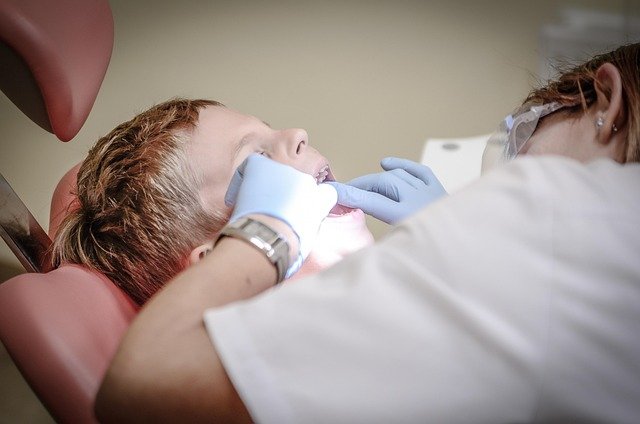Find Housing Assistance for Single Moms Near You: Programs, Grants, and Local Support
Finding safe and affordable housing can be challenging for single moms, but there are programs, grants, and local resources designed to provide support. From government assistance and nonprofit initiatives to community-based programs, these options aim to help single mothers secure stable housing, reduce financial stress, and create a safe environment for their families.

Government Programs and Housing Assistance for Single Moms
Federal and state governments offer several programs designed to help single mothers access affordable housing. The Section 8 Housing Choice Voucher Program, administered by the U.S. Department of Housing and Urban Development (HUD), provides rental assistance to eligible low-income families. Single mothers who qualify receive vouchers that cover a portion of their monthly rent, allowing them to choose housing in the private market. Eligibility typically depends on income level, family size, and citizenship status.
Public housing is another government option where local housing authorities own and manage affordable apartment complexes. These units charge rent based on income, usually around 30 percent of the family’s monthly income. The application process can be lengthy due to high demand, so single mothers should apply as early as possible. Additionally, the HOME Investment Partnerships Program provides grants to states and localities to fund affordable housing activities, including rental assistance and housing rehabilitation.
The Temporary Assistance for Needy Families (TANF) program also offers housing support in some states. While primarily focused on cash assistance and job training, TANF funds can sometimes be used for housing-related expenses such as security deposits, utility payments, and emergency rent assistance. Single mothers should contact their local TANF office to learn about available housing benefits in their area.
Grants and Financial Aid Opportunities
Beyond government programs, various grants and financial aid opportunities help single mothers with housing costs. Nonprofit organizations like Modest Needs and the Salvation Army provide emergency financial assistance for rent, utilities, and security deposits. These grants typically target families facing temporary hardships who need short-term support to avoid eviction or homelessness.
The Federal Emergency Management Agency (FEMA) offers housing assistance to families affected by natural disasters. Single mothers who have lost their homes or experienced significant damage due to hurricanes, floods, or other disasters may qualify for temporary housing assistance or funds to repair their homes. Religious organizations and faith-based charities also operate grant programs specifically for single mothers, often requiring minimal paperwork and offering quick turnaround times.
Some states and municipalities maintain their own housing grant programs funded through local budgets or community development block grants. These programs may offer down payment assistance for first-time homebuyers, rental assistance for working families, or transitional housing support for mothers leaving domestic violence situations. Single mothers should research their state housing finance agency website to discover available opportunities in their area.
Cost Considerations and Provider Comparison
Understanding the typical costs and available providers helps single mothers make informed housing decisions. Rental assistance programs vary significantly in coverage amounts and eligibility requirements. Below is a comparison of common housing assistance options:
| Program/Service | Provider | Cost Estimation |
|---|---|---|
| Section 8 Housing Voucher | Local Public Housing Authority | Covers portion of rent; tenant pays 30% of income |
| Public Housing | Local Housing Authority | Rent typically 30% of monthly income |
| TANF Housing Assistance | State Department of Social Services | Varies by state; may cover deposits or emergency rent |
| Emergency Rent Grants | Salvation Army, Catholic Charities | One-time grants typically $500-$2,000 |
| Transitional Housing | Local Nonprofits (e.g., Family Promise) | Subsidized or free for 6-24 months |
| Down Payment Assistance | State Housing Finance Agencies | Grants or loans of $2,500-$15,000 |
Prices, rates, or cost estimates mentioned in this article are based on the latest available information but may change over time. Independent research is advised before making financial decisions.
Local Community Resources and Support Networks
Community-based organizations play a crucial role in connecting single mothers with housing resources. Local nonprofits often provide case management services, helping families navigate complex application processes and access multiple forms of assistance simultaneously. Organizations like Habitat for Humanity offer affordable homeownership opportunities through their build programs, where families contribute sweat equity in exchange for low-cost mortgages.
Community action agencies, found in nearly every county across the United States, serve as centralized hubs for social services. These agencies can help single mothers apply for energy assistance, weatherization programs, and housing counseling services. Many also maintain emergency assistance funds for families facing immediate housing crises. Churches, synagogues, and other faith communities frequently operate benevolence funds or partner with social service agencies to provide housing support.
Women’s shelters and domestic violence programs offer specialized housing assistance for single mothers fleeing abusive situations. These programs provide safe emergency shelter, transitional housing, and long-term housing placement services. Support groups and peer networks, whether in-person or online, also serve as valuable resources where single mothers share information about available programs, application tips, and personal experiences navigating the housing assistance system.
Taking the Next Steps Toward Housing Stability
Securing housing assistance requires persistence and organization. Single mothers should begin by gathering necessary documentation, including proof of income, identification documents, birth certificates for children, and any relevant financial records. Contacting the local housing authority is typically the first step for accessing government programs, while 211 helplines can connect families with community resources.
Many housing programs have waiting lists, so applying to multiple programs simultaneously increases the chances of receiving timely assistance. Single mothers should also explore housing counseling services approved by HUD, which provide free guidance on budgeting, credit repair, and homeownership preparation. Building relationships with case managers and maintaining regular communication with program administrators helps ensure applications remain active and families receive updates about available opportunities.
Housing stability forms the foundation for family well-being, enabling children to thrive in school and mothers to pursue employment and educational goals. While the process of securing assistance can be challenging, the combination of government programs, grants, and community support creates multiple pathways for single mothers to achieve safe, affordable housing for their families.




